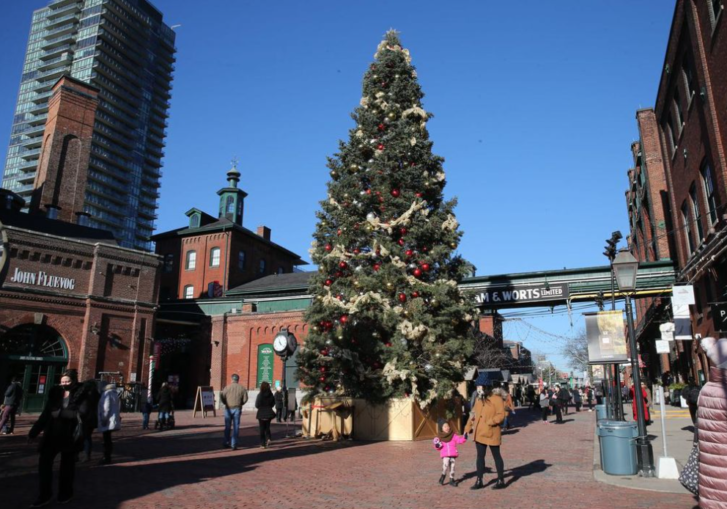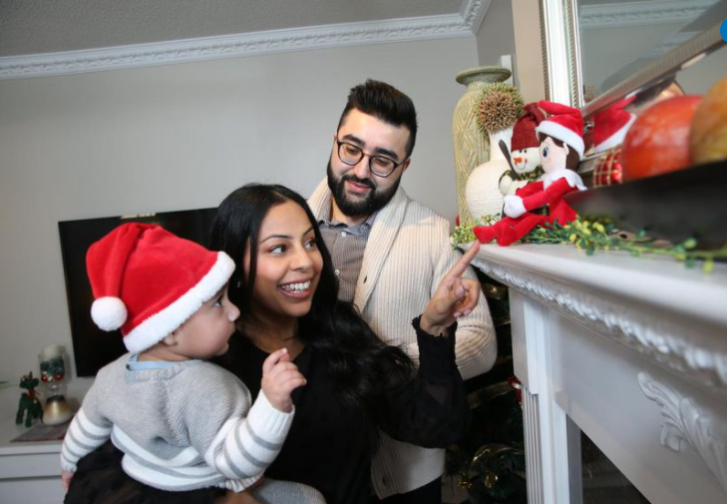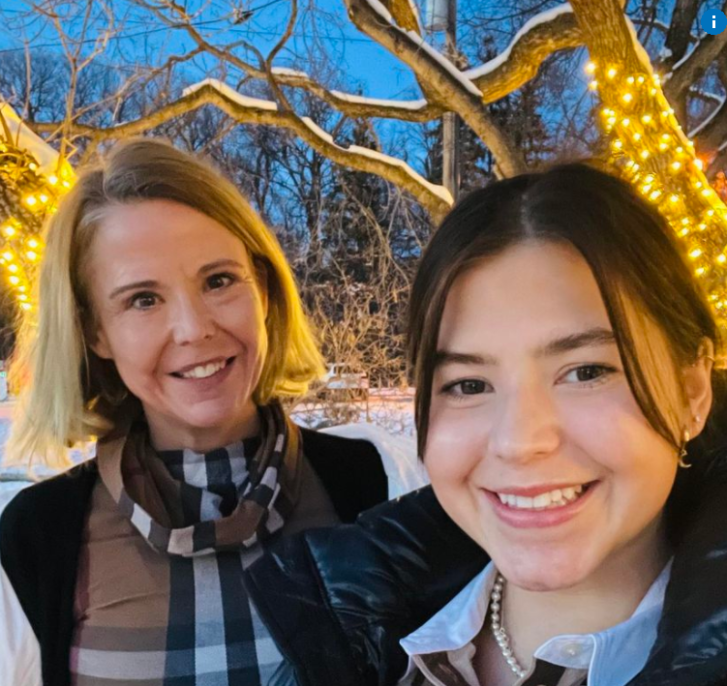A dinner of chicken with stuffing, mixed in with some Indian food. A Secret Santa gift exchange. Everyone gathered around the TV to watch “Home Alone.”
These are the simple holiday pleasures Dr. Nitin Mohan, assistant professor of microbiology and immunology at Western University, is looking forward to sharing with a couple of extended family members, after COVID essentially cancelled the season last year.
“While I’m frustrated that we won’t be having the Christmas we thought we would be having a month ago, when I look at where we were last year, I still think we’re in a better position than where we were back then, ” said Mohan, who is being extra cautious as he and his wife have a five-month-old son.

The Star reached out to COVID-19 experts, including Mohan, to ask how they were marking the 2021 holidays, whether that involved celebrating Christmas, Kwanzaa, New Year’s Eve, or just enjoying some time off work.
Fifty epidemiologists, infectious disease experts, health analysts, virologists, immunologists, biostatisticians, a few PhD students and others from coast to coast, responded.
The upshot? Vaccines have opened up the possibility for gathering with loved ones, something many missed out on last year. But the pandemic is not over, and the quickly evolving situation with the new Omicron variant has made decisions even more complicated. The experts stressed that the situation is changing fast; they’re watching closely and are prepared to scale down, or even cancel plans, if needed. Thirty-nine experts who answered the Star’s survey plan on having a small dinner or gathering with people outside of their household this holiday season.

Dr. Kieran Moore, Ontario’s chief medical officer of health, told reporters Tuesday that people should keep things small and limit contacts “as the risk goes up,” hinting that more guidance will be coming soon. It also depends on your own individual health, and the situation in your family and community. If you’re very vulnerable to COVID, than you should “avoid contact with others” altogether, he said.
Last year, when the Star conducted a similar survey, most Canadians were forced inside by government restrictions and only able to socialize within their households or outside in small groups.
This Christmas, Canadians are freer to gather (albeit with some restrictions), dine in a restaurant, and partake in some of the usual, pre-pandemic festive activities. Experts’ holiday plans reflect that range of choices.
Decisions on attending gatherings or holiday parties are largely influenced by peoples’ unique situations, like the prevalence of COVID in their area, the vaccination status of their friends and family, and their own personal risk tolerances.
As a result, feelings about socializing outside of the household vary significantly.
Dr. Martha Fulford, infectious-disease specialist at McMaster Children’s Hospital in Hamilton, said she has “no concerns at all,” adding, “It is time to move on and learn to coexist with COVID.”
Laura Cowen, professor of statistics at the University of Victoria, said: “We just had an outbreak at UVic and we are now pivoting online. It would be reckless to have a gathering outside of my household at this time.”
“It’s just not worth it,” wrote Ananya Banerjee, assistant professor of epidemiology at McGill University, whose mom is immunocompromised and a cancer survivor. Instead of seeing people outside of her household, Banerjee plans to spend the holidays “learning the amazing traditional Indian dishes” her mom cooks. She’ll visit with friends and family outdoors (“weather permitting of course!”) enjoying the “wondrous beauty of nature.”
Despite some risks, most experts feel it’s possible to gather safely in small groups. Many are taking precautions like using rapid tests beforehand, opening windows to increase airflow and ensuring everyone eligible is vaccinated.
After a holiday season in lockdown last year, most are just thankful to celebrate with loved ones at all.
“Last year was very lonely for many of us. I was alone with my daughter, our first Christmas without her brother or grandparents,” wrote Cynthia Carr, an epidemiologist in Winnipeg, adding that she picked up Christmas dinner from her parents. (“They cooked, because I cannot.”)

This year, she’s excited to be able to celebrate with both of her kids, and to enjoy her parents’ amazing meal in person again.
Twelve experts are planning on attending a larger gathering of more than 10 people, though most are keeping it under 15, with just extended family or close friends. Some plan to take the bigger parties outside, to skating rinks and bonfires.
In Ontario, private indoor gatherings are still capped at 25. Kingston, Frontenac, and Lennox & Addington health unit is asking that people keep them at five people or less, amid an Omicron surge.
While most experts will see friends and family, the majority will do so close to home. Just 11 are planning on travelling.
(As of press time Tuesday night, the federal government was poised to warn against non-essential travel over the holidays.)
Over the course of the five days we gave experts to answer the survey, at least three went back to change their answers as the situation became more dire.
“I was feeling much better about my family’s Christmas plans a few weeks ago. Now, less so,” wrote Toronto-based science communicator Samantha Yammine in an updated response to the survey.
She says her family is planning to protect her small Christmas gathering by being mindful of their “risk budget” in the week leading up to the holiday, postponing other social plans and limiting close contacts. Yammine posted tips for holiday gatherings on Instagram, including making it easy for guests to bail if they have symptoms, rapid testing between events and opening windows/having HEPA filters around (since COVID is airborne).
Mohan, like many, is taking precautions. Everyone at his gathering who is eligible will be vaccinated — a few people work in health care and they will have three doses — and they will all isolate for three to five days beforehand. He’s watching the Omicron numbers closely, in case they need to cancel.
But he also thinks it’s important to factor in mental health, and be “empathetic” with one another “because this isn’t easy for anyone.”
For Banerjee, it’s also a time to reflect on how much we have, as Canadians.
“We should be grateful we are at the stage of getting access to booster shots while so many low-middle-income countries are still waiting for their first dose of vaccination,” she said.
Article From: The Star
Author: Lex Harvey,May Warren

